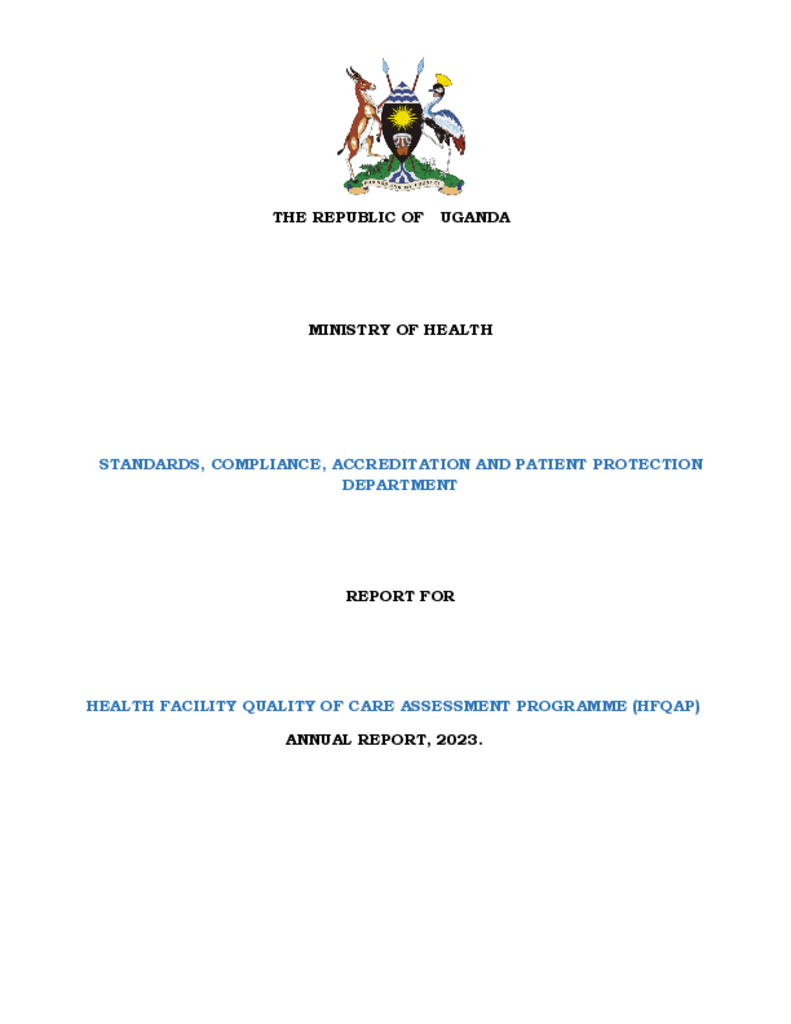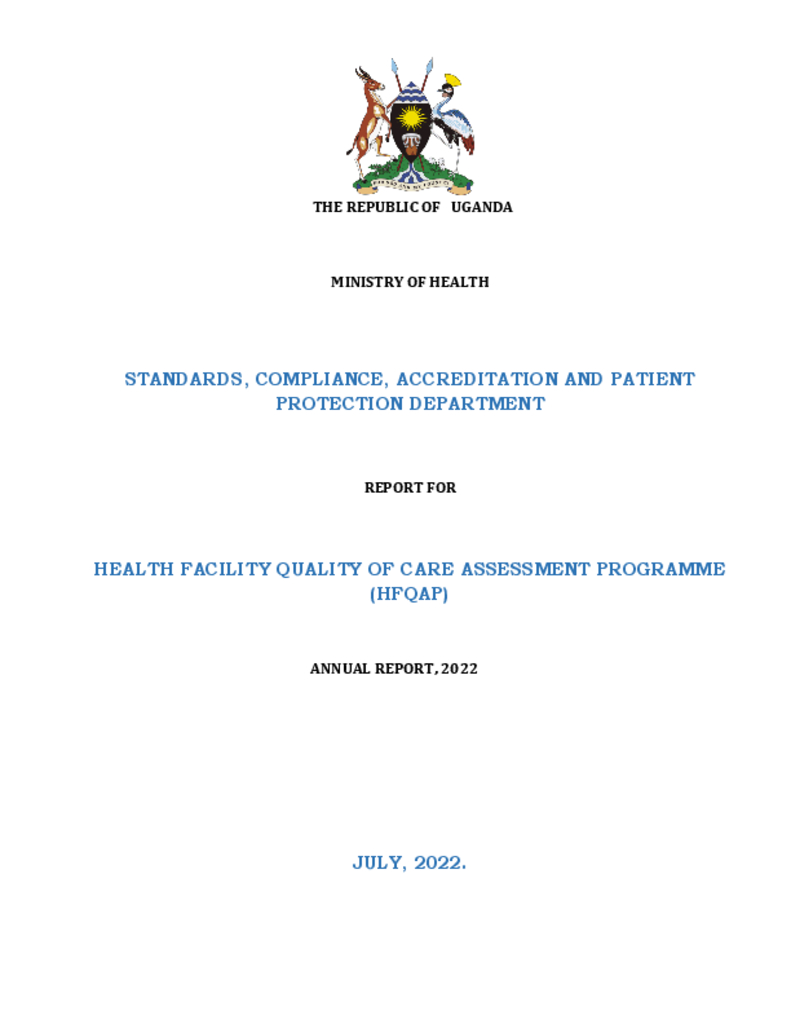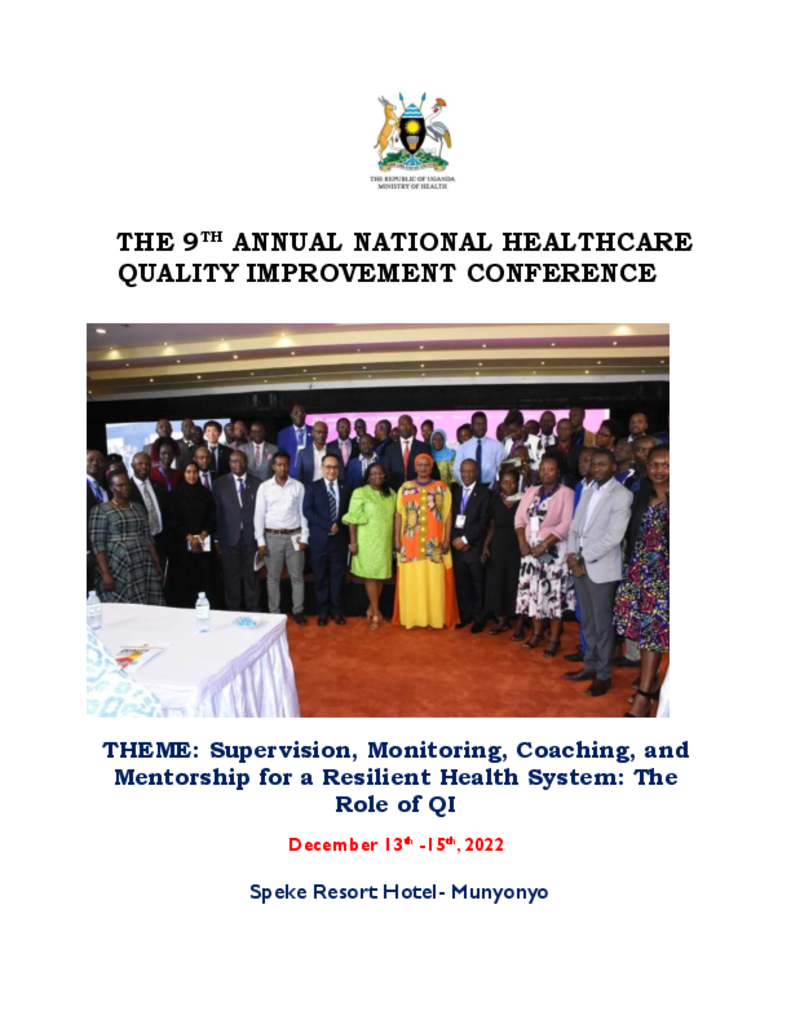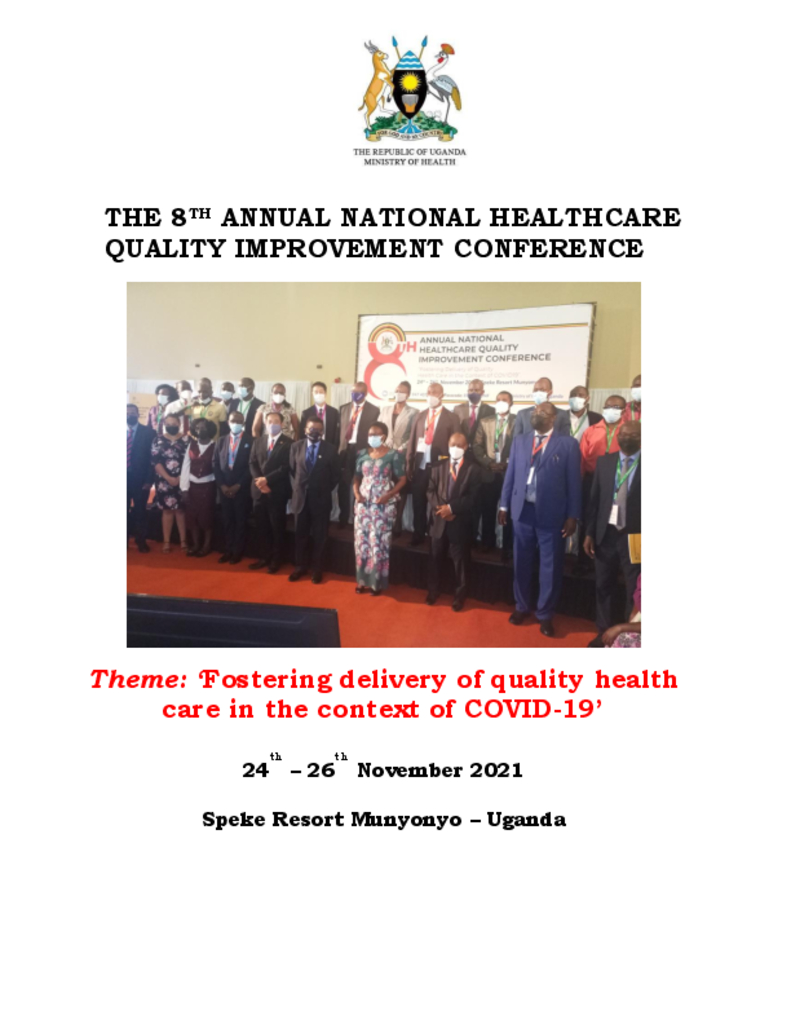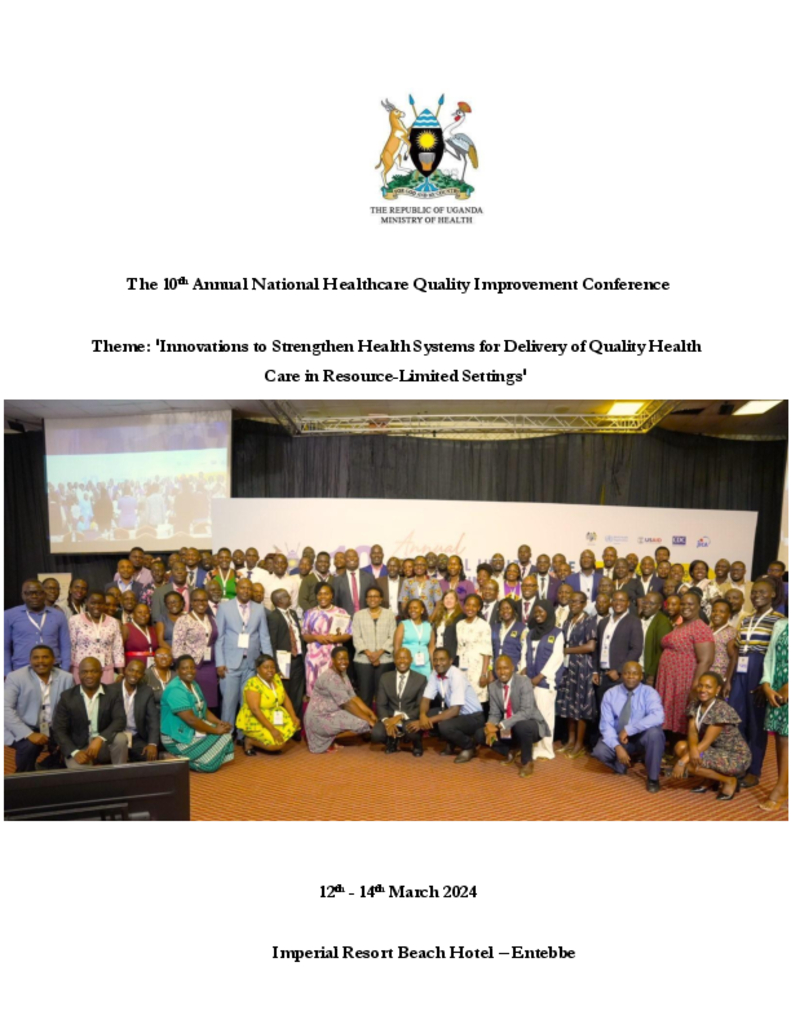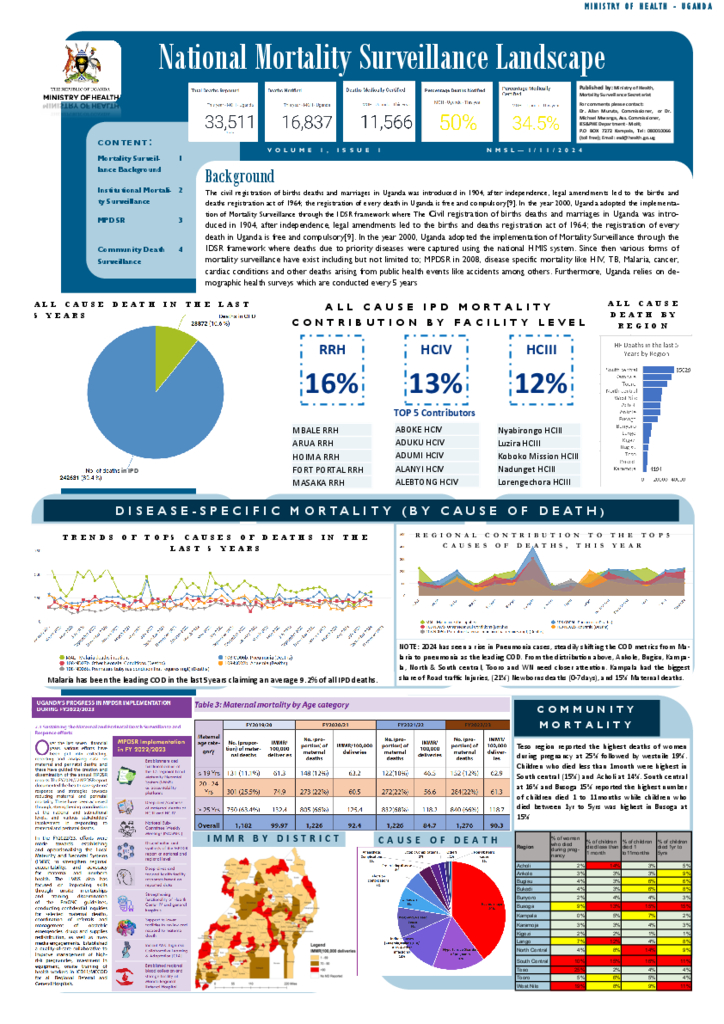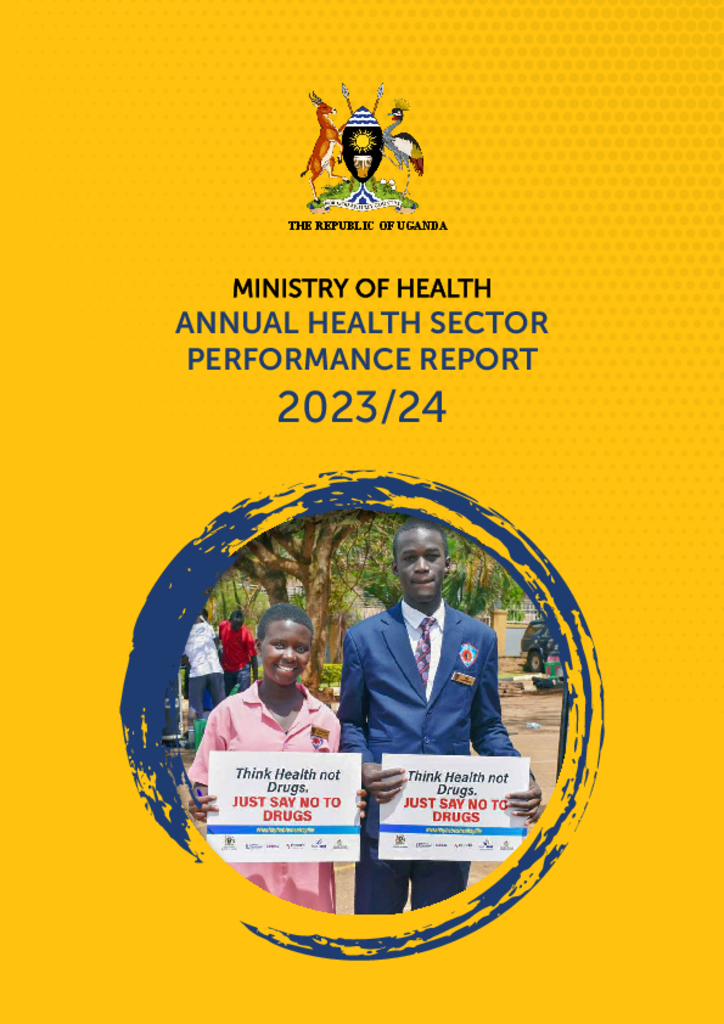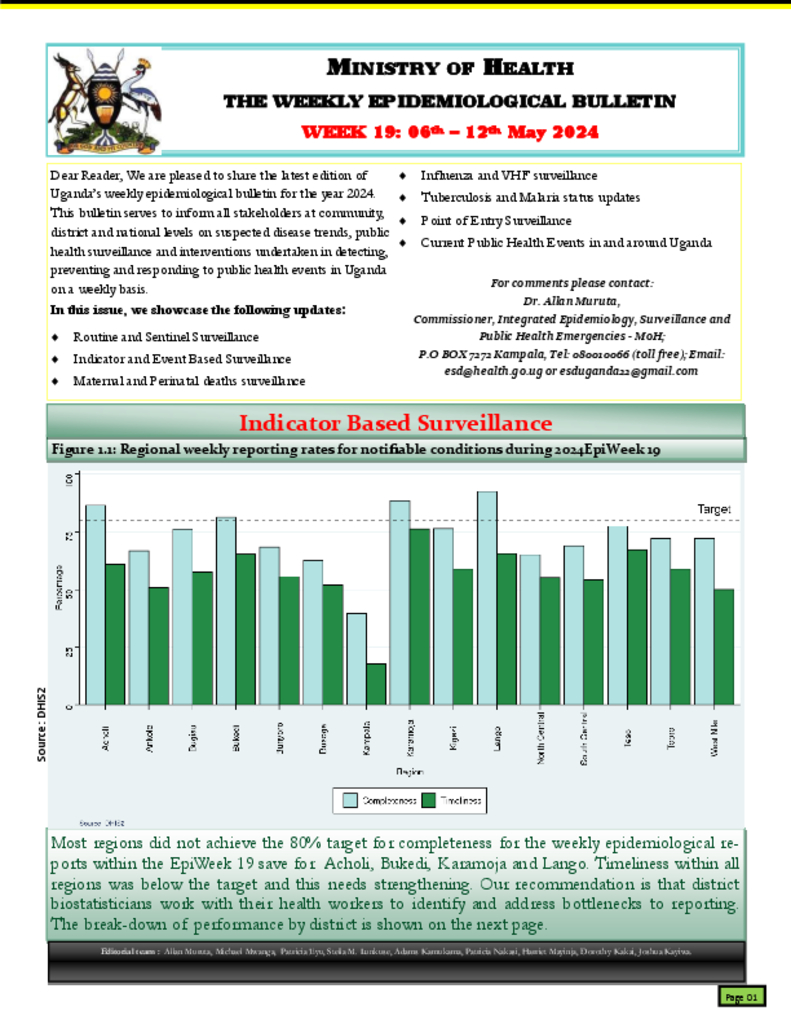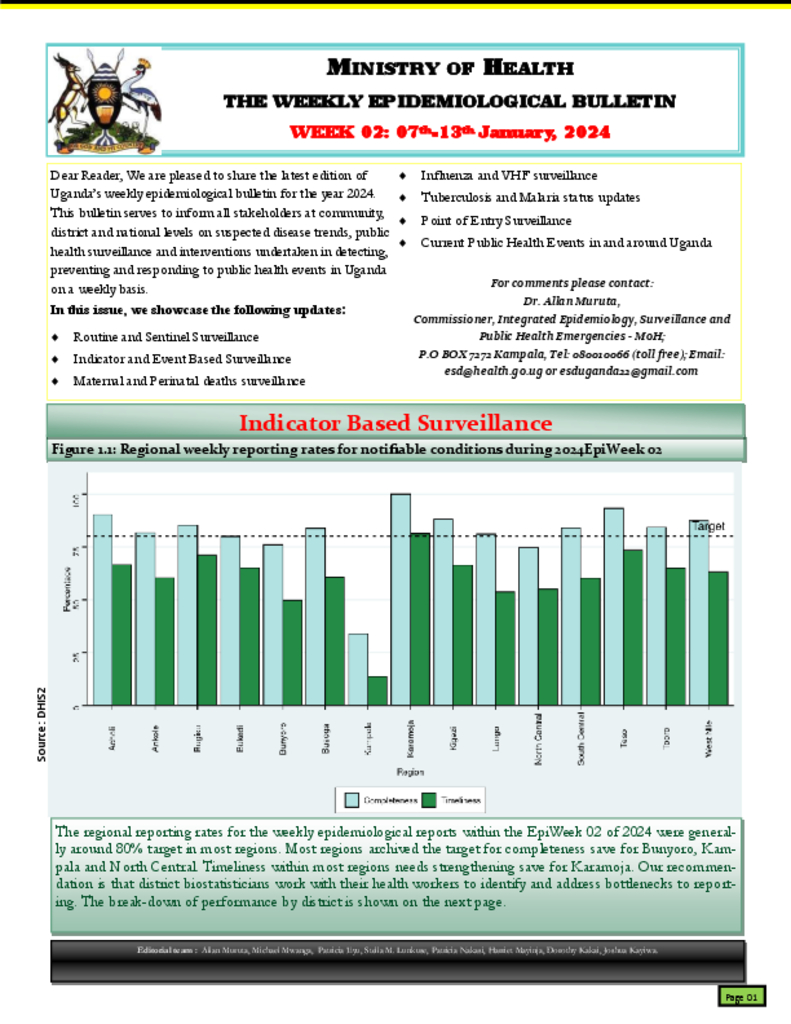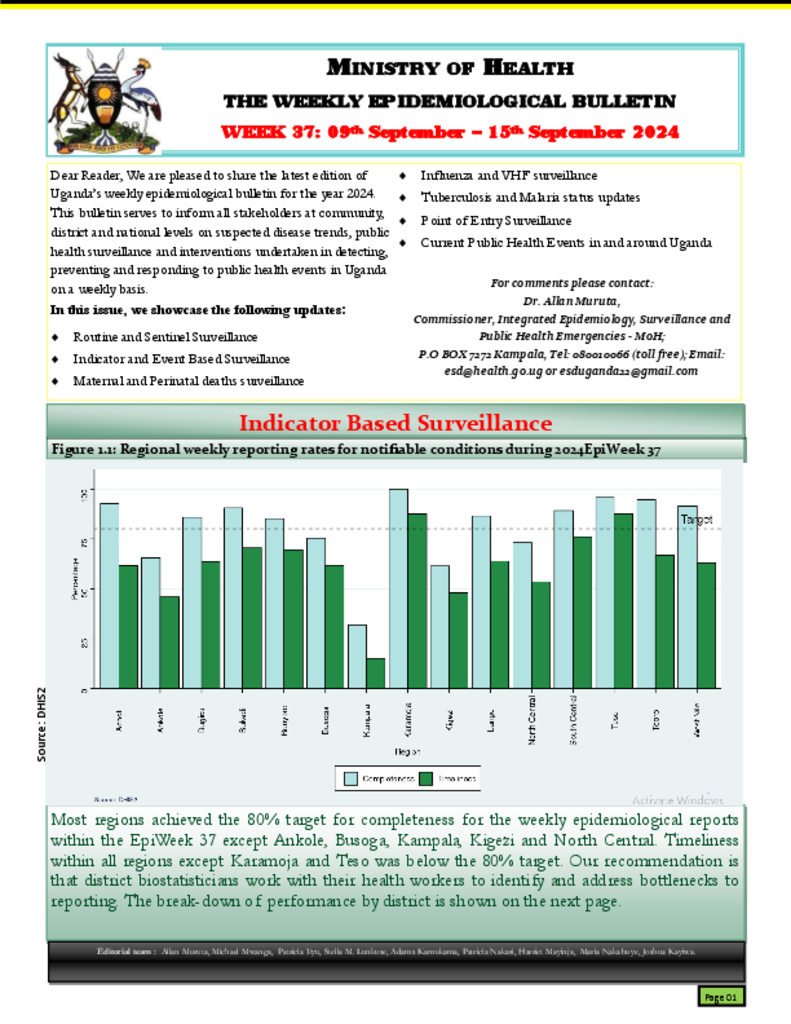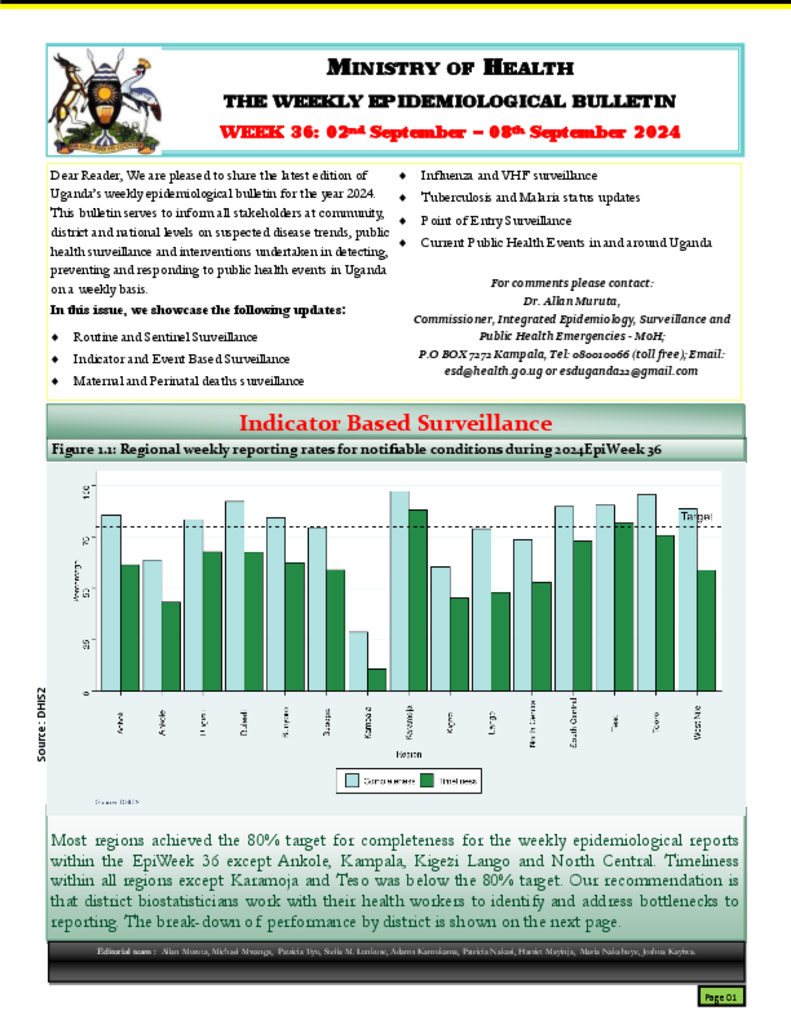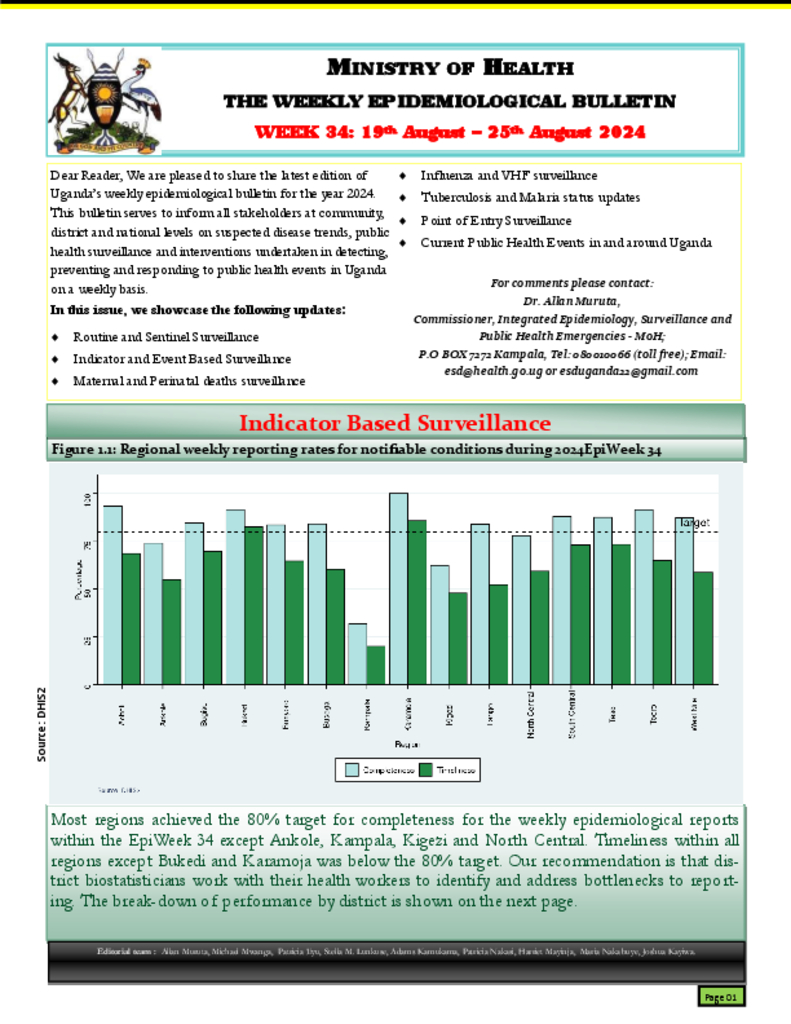The Health Facility Quality of Care Assessment Program (HFQAP) was launched by Ministry of Health in 2015, whose main goal was to provide regular information on quality of care and the general functionality of both the public and private (PNFP) health facilities in Uganda. The information generated from periodic assessments is to be used for performance monitoring and Continuous Quality Improvement (CQI).
The Health Facility Quality of Care Assessment Program (HFQAP) was launched by Ministry of Health in 2015, whose main goal was to provide regular information on quality of care and the general functionality of both the public and private (PNFP) health facilities in Uganda. Only health facilities that report through District Health Information System (DHIS2) were considered. The information generated from periodic assessments is to be used for performance monitoring and Continuous Quality Improvement (CQI).
The 9th National Quality Improvement Conference is one special forum where researchers, practitioners, health service managers, policy makers, and academia come together to take stock of what has worked and what has not worked. experts. The conference of December 2022 brought together delegates from all levels of the health sector including, development & implementing partners, health care service providers and health consumer organizations under the theme “Supervision, Monitoring, Coaching, Mentorship for a resilient health system: The Role of QI”.
The 8th QI conference was the 2nd of its kind given that it was mainly virtual with over 2,000 participants expected to be hosted. This National QI Conference was therefore timely and planned to provide a forum for peer learning through showcasing QI work from across the country, coupled with
expert presentations on QI work from national and international experts.
The health sector developed the National Quality Improvement Framework & Strategic Plan (NQIF&SP) 2020/21 – 2024/25 that was launched in November 2021 at the 8th National QI Conference. The national quality improvement conference is a forum where frontline healthcare providers, researchers, practitioners, health services managers, policymakers and academia come together to share experiences of best practices, challenges, and innovations in health practice aimed at improving the quality of health care. This usually includes sharing in Country and international experiences. This report highlights the discussions, key talking points, and key recommendations that emerged from the conference.
Uganda adopted the implementation of Mortality Surveillance through the IDSR framework where The Civil registration of births deaths and marriages in Uganda was introduced in 1904, and after independence, legal amendments led to the births and deaths registration act of 1964; the registration of every death in Uganda is free and compulsory[9]. In the year 2000, Uganda adopted the implementation of Mortality Surveillance through the IDSR framework where deaths due to priority diseases were captured using the national HMIS system. Since then various forms of mortality surveillance have exist including but not limited to; MPDSR in 2008, disease specific mortality like HIV, TB, Malaria, cancer, cardiac conditions and other deaths arising from public health events like accidents among others. In the FY2022/23, efforts were made towards establishing and operationalising the local Maternity and Neonatal Systems to strengthen regional accountability, and advocacy for maternal and newborn health.
Annual Health Sector Performance Reports are compiled in line with the national and health sub-programme M&E frameworks which promote joint program monitoring and evaluation and reviews. This report provides evidence-based data and therefore should be widely disseminated and utilized for policy dialogue, advocacy, planning, operational research, resource mobilization and allocation to the health sector.
Uganda’s weekly epidemiological bulletin for the year 2024, serves to inform all stakeholders at community, district and national levels on suspected disease trends, public health surveillance and interventions undertaken in detecting, preventing and responding to public health events in Uganda on a weekly basis.
Uganda’s weekly epidemiological bulletin for the year 2024. This bulletin serves to inform all stakeholders at community, district and national levels on suspected disease trends, public health surveillance and interventions undertaken in detecting, preventing and responding to public health events in Uganda on a weekly basis.
Uganda’s weekly epidemiological bulletin for the year 2024, serves to inform all stakeholders at community, district and national levels on suspected disease trends, public health surveillance and interventions undertaken in detecting, preventing and responding to public health events in Uganda
on a weekly basis.
Uganda’s weekly epidemiological bulletin for the year 2024, serves to inform all stakeholders at community, district and national levels on suspected disease trends, public health surveillance and interventions undertaken in detecting, preventing and responding to public health events in Uganda
on a weekly basis.
Uganda’s weekly epidemiological bulletin for the year 2024, serves to inform all stakeholders at community, district and national levels on suspected disease trends, public health surveillance and interventions undertaken in detecting, preventing and responding to public health events in Uganda
on a weekly basis.
